IASE promotes | commitment to the community

Our History
Headquartered in London, UK, The International Association for Sustainable Economy (IASE) represents the sustainability profession globally regarding standard-setting, and advocates on behalf of the profession to international organizations, governments, businesses, non-governmental organizations and civil society. In addition to ensuring compliance with best practice and certification standards it sets globally, IASE also provides the most relevant knowledge and resources in supporting and protecting the evolving public interest. We’re shaping a sustainable future. You need to be part of it!
IASE promotes | commitment to the community

Our History
Headquartered in London, UK, The International Association for Sustainable Economy (IASE) represents the sustainability profession globally regarding standard-setting, and advocates on behalf of the profession to international organizations, governments, businesses, non-governmental organizations and civil society. In addition to ensuring compliance with best practice and certification standards it sets globally, IASE also provides the most relevant knowledge and resources in supporting and protecting the evolving public interest. We’re shaping a sustainable future. You need to be part of it!
IASE, together with its member organizations around the world work in a closely knit manner to achieve their shared vision and mission.
Vision
To develop Environment, Social and Governance into a recognized and respected profession the world over.
Mission
To benefit humanity by establishing, upholding and promoting global standards for the ESG profession as evidenced by ISF (International Sustainable Finance) and ISB (International Sustainable Business) twin certification marks signifying highest level of excellence in the practice of the profession.
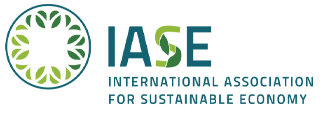
Governance:
Understand more about IASE corporate governance
The Board is our governing body and its role is to promote the long-term sustainable success of the IASE and to generate value for its members and stakeholders worldwide.
The Companies Act 2006 Company limited by guarantee. Adopted on 02 July 2020

Governance:
Understand more about IASE corporate governance
The Board is our governing body and its role is to promote the long-term sustainable success of the IASE and to generate value for its members and stakeholders worldwide.
The Companies Act 2006 Company limited by guarantee. Adopted on 02 July 2020
What We Do
The International Association for a Sustainable Economy (IASE) works to develop ESG standards, certification requirements and body of knowledge so as to achieve commonality and harmony to the practice of the sustainability profession, even whilst recognizing country and regional specific differences. To achieve its mission, IASE engages in the following:
Setting Standards
IASE, in consultation with its global stakeholders, establishes and enforces compliance with the highest global professional and ethical standards for ESG practitioners as well as certification requirements for those aspiring to professional levels of practice. IASE certification marks are the standards of excellence for ESG professionals worldwide.
Leadership and Advocacy
As one of the main international professional standards-setting body for the ESG profession, IASE community, on an ongoing basis, advocates and engages international and regional organizations, governments, NGOs, business leaders and civil society and any other relevant stakeholder groupings in furtherance of its stated vision and mission.
Recognition and Awareness
IASE community works to ensure that all stakeholders in the global marketplace recognise IASE as the global standards setting body for the sustainability profession.
We also work on developing and executing global promotion campaigns aimed at positioning ISF and ISB certification marks as symbols of excellence for sustainability professionals.
ISB & ISF
The ISF and ISB credentials are one of the most desired and respected global certifications for those seeking to demonstrate their commitment to competent and ethical ESG practice. They symbolise excellence and utmost professionalism in the ESG and Sustainability profession the world over. These designations instantly position you as an expert in the field of ESG and Sustainability.
IASE’s prestigious professional designations - INTERNATIONAL SUSTAINABLE FINANCE® (ISF®) and/or INTERNATIONAL SUSTAINABLE BUSINESS® (ISB®) - are recognised as evidence of the highest standards of knowledge, technical expertise, and professionalism the world over. Whilst the ISF® designation is suited for ESG and Sustainability practitioners who work in the field of finance (eg banking, insurance, micro finance, wealth management, accounting, treasury management), the ISB® designation is suited for ESG and Sustainability practitioners who work in all other non-finance related fields of business.


Each IASE designation recognizes 3 levels of proficiency. Thus, the levels represent a career progression path for ESG and sustainability practitioners with Level 1 representing Foundational Level, Level 2 representing Intermediate Level and Level 3 representing the Expert Level.
Methodology & Standards
IASE qualifications and designations are designed in consultation with experienced sector practitioners. All IASE qualifications are quality-assured and supported by relevant learning outcomes.
IASE designations are flexible, allowing you to create a learning pathway to suit your needs.
Only individuals who meet our internationally benchmarked 4-E certification standards are awarded these designations. Our 4-E standards include:
- Ethics (agree to abide by IASE’s Code of Ethics and Professional Responsibility)
- Education (relevant qualification)
- Examination (pass a Professional Competency Exam/Board Exam set by IASE)
- Experience (pertinence to Sustainable Economy)
All our members are required to adhere to our Code of Ethics, a set of principles ensuring we maintain high standards of integrity, probity and ethical fair dealing.
Ethics are a cornerstone of professionalism, and ethical behaviour is crucial to secure public trust and confidence in the profession and to build a reputation which people value. Failure to comply with the Code may result in disciplinary action against the member and risk adverse publicity for the member and their organisation

After successfully meeting the 4E standards above and being awarded either of these designations, holders must also demonstrate annually that they meet the following additional professional requirements:
- Continuous Professional Development (commitment to lifelong learning)
- Continued adherence to IASE’s Code of Ethics and Professional Responsibility
IASE Code of Ethics
Professional IASE certificate holders fulfill a number of important functions in all the sectors: on the basis of high-quality training and designations, as well as of widely accepted codes of professional conduct, our organization can build on a solid foundation of ethical behaviour, competence and technical skills in all the markets. A central goal of IASE is to promote the development and dissemination of such international professional standards in order to contribute towards the highest level of quality in the professional practice of ESG matters.
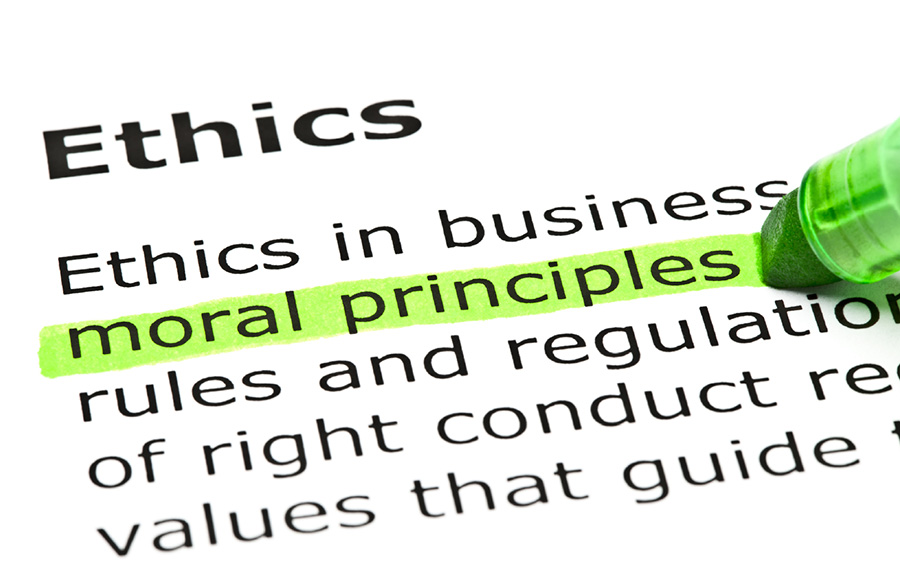
IASE is convinced that every ESG certificate holder is defined by two main features: professional integrity and professional designations. Ethics and skills are the two dimensions by which every ESG professional should be measured. After all, potential clients must be able to trust the integrated International ESG market and its major actors.
The IASE Principles seek to ensure the highest ethical conduct of its certificate holders. Primarily, these principles are directed at IASE certificate holders, but they also aim at setting standards for everyone in the profession, thus contributing to the integrity of International ESG markets as a whole.
IASE is best equipped to provide its members and any other person in the profession with the acquisition of the necessary skills to provide appropriate advice to clients. The diversity of national and regional approaches in different societies is aimed at enriching the profession and creating a cross-fertilization of ideas; while the approach to ethical conduct tends to become standard across all nations and across all markets, a number of details still remain subject to local laws and customs. All certificate holders must comply with the following Code of Ethics according to the IASE Qualification Standards. In cases where the Code of Ethics is broken the Ethics Committee of each country has the right to suspend or withdraw the certification which will have the effect of disallowing the individual to advertise that he/she is an IASE member.
Fundamental Principles & Key Principles which have been defined as standards that each national association is recommended to adopt for its members so as to give practical effect to each Specific Fundamental Principle.
IASE Exams
We are all living in a dynamic world where needs and professional profiles are continuously changing. We work closely with the industry in order to adapt our syllabus to market needs.
Professionalism begins with designations
IASE designations cater for all levels of knowledge and experience, from new entrants through to seasoned professionals.
Quality assured learning
IASE designations are designed in consultation with experienced sector practitioners and academia. This means IASE designations are quality assured and supported by relevant learning outcomes.
Flexibility to suit your needs
IASE designations are flexible, allowing you to create a learning pathway to suit your needs – whether you’re looking to apply learning to your existing role or towards your career aspirations.

Education
To be awarded either of IASE’s INTERNATIONAL SUSTAINABLE FINANCE® (ISF®) and INTERNATIONAL SUSTAINABLE BUSINESS® (ISB®) designations, the aspirant for the level 1 must have at least a high school diploma qualification.
Study Material and Training
Whilst it is not a requirement, the IASE encourage learners who do not already have an ESG specific qualification to consider taking up our ESG Qualifications Course as this would help ensure a solid grounding before attempting the IASE Professional Competency Examination (PCE). Aspirants should enquire about the IASE endorsed ESG Qualifications Course/s with their local IASE Member.

Examination
To be awarded either of IASE’s coveted ISF® and ISB® professional designations, the aspirant must write and pass IASE’s Professional Competency Examination (commonly called PCE or “Board Exam”).

A corporate strategy that is fully compatible and responsible with the reality facing our planet
1. Provides for a Corporate Strategy that is fully compatible and responsible with the reality facing our planet: having a sustainable strategy that incorporates ESG criteria allows the company to comply with the United Nations' sustainable development principles and positions it as an institution that bets on and defends ethical values that are fully shared by the main organizations worldwide.

Increased return on investment
2. Increased Return on Investment: in the last 12 months, the return on funds invested in companies that have an ESG component have performed better than those that do not have a sustainable investment policy associated with them. This gap is expected to increase over time towards companies that have fully embedded ESG policies. This reality has also been shown empirically through more than 2,000 academic studies which show that, in more than 70% of the cases, there is a high correlation between companies with ESG criteria and the best financial results obtained. Investors are shifting their portfolio towards more sustainable companies, and those without a clear ESG long term policy are suffering a decrease in their price value and their liquidity, because private and public institutional investors are not interested in maintaining those companies when readjusting their asset allocation scheme.

More efficient financing cost structure
3. More efficient financing cost structure: those institutions that have incorporated ESG metrics in the management of their processes, and especially in the reduction of their carbon footprint, can access better and cheaper sources of financing than those companies that continue with a policy of managing their resources in a traditional way.

Reduction of operational and production costs
4. More efficient financing cost structure: those institutions that have incorporated ESG metrics in the management of their processes, and especially in the reduction of their carbon footprint, can access better and cheaper sources of financing than those companies that continue with a policy of managing their resources in a traditional way.

A ESG governance system based on good professional practices and ethical principles
5. An ESG Governance System based on good professional practices and ethical principles in organizations introduce ESG governance systems, incorporate decision processes that take into account all of their stakeholders (shareholders, customers, employees, suppliers, etc.) and aim to ensure that the interaction of all of them is carried out in an optimum manner and always respecting criteria that guarantee maximum professionalism and compliance with deontological codes.

A much more responsible organisational culture
6. It allows a much more responsible organisational culture: those organizations that introduce awareness policies through training projects on the importance of ESG begin to find that they have better corporate performance than those that do not. In fact, they constitute a whole change of mentality that contributes decisively to the institution being fully aligned with Environmental, Social and Governance criteria.

Improved Work opportunities within the organisation
7. Improved work Opportunities within the Organisation: an adequate internal equality policy allows the company to contribute generating the same work opportunities for both men and women, increasing the motivation of a very important segment of the institution, and also making available much more talent that will result in improved decision-making throughout the organisation.

A better work-life balance among employees
8. It allows for a better work-life balance among employees: those organizations which incorporate ESG criteria allow for a better balance between work and family life demands through more compatible schedules and/or the incorporation of teleworking. All of this results in a better working environment for the entire organisation and contributes to a higher level of motivation than in organizations which do not incorporate this type of personnel policy.

A ESG compliant regulation organisation
9. Prepares the organisation to be able to comply with regulatory requirements: worldwide, regulatory pressure is increasing. And in the case of ESG requirements, there are several international initiatives that will clearly and demonstrably require organizations to incorporate sustainability, social and governance criteria both in their corporate strategy and in their own daily operations. Those institutions that do not comply with the new regulations may be penalised with the consequent impact on reputational risk, among others.

Increased corporate social responsibility
10. It contributes to the Organization's Customers having a good perception of the company's corporate image: currently, there is a trend of consumers demanding products and services from companies that comply with ESG criteria. This trend will increase in the coming years. And therefore, only organizations that have such criteria incorporated into their DNA will have a competitive advantage in an increasingly competitive global market.
IASE, the first Association worldwide to certify ESG professionals, has drawn up a list of ten Strategic Points in which it summarizes why corporations should work to promote ESG policies in the Covid-19 era.
Executive Committee
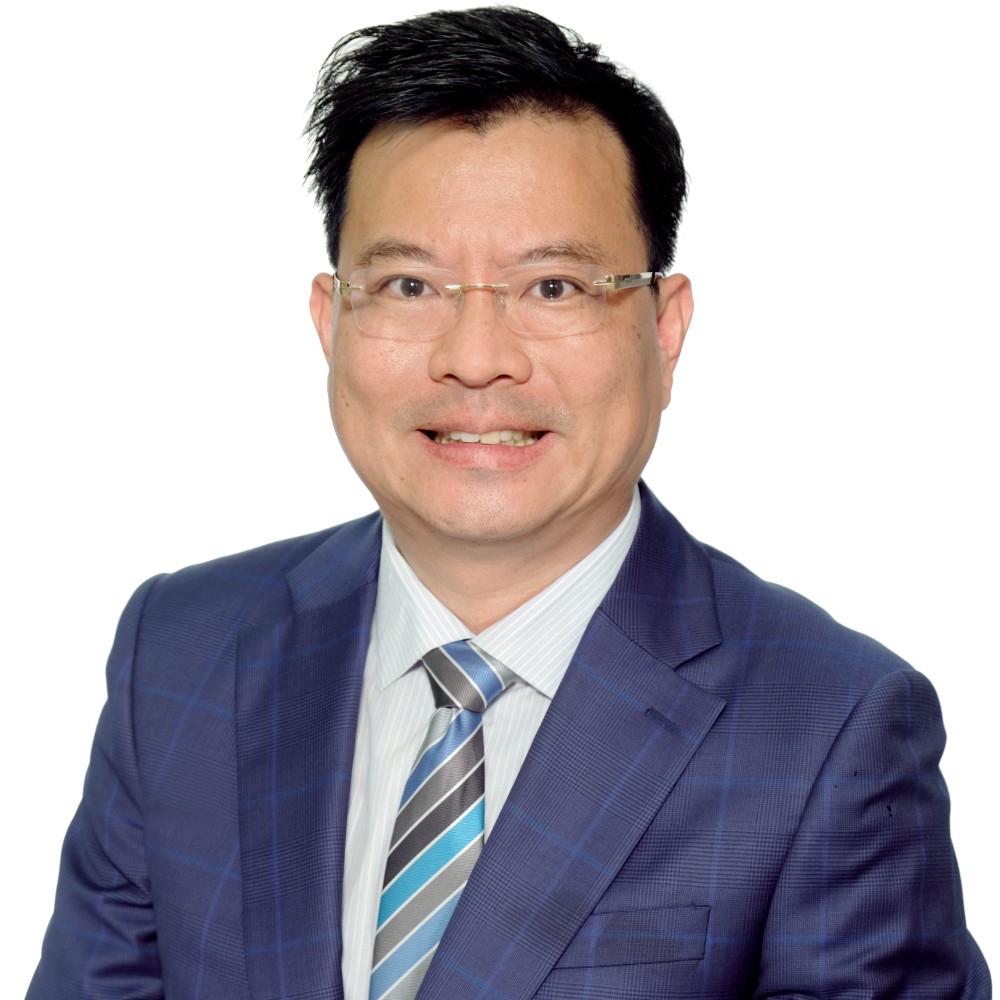
Mr. Cliff Cheng | Executive Director
Cliff has more than 20 years of working experience in financial services and fintech industry in various capacities as technology & management consultant and corporate executive across China, Hong Kong, and Asia having worked in Accenture, AIA Group and Assicurazioni Generali Group.
Cliff is currently active in venture capital advisory covering startups in fintech, healthtech, and green tech in Asia.
Cliff holds a MSc (Investment Management) degree from HKUST Business School in Hong Kong. He holds IASE International Sustainable Finance® Specialist designation and is a member of Cambridge Institute for Sustainability Leadership network.
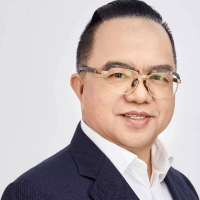
Dr Ooi Kim Chai | Director
Dr. Ooi has more than 30 years of working experience in the insurance industry with global multinational companies across Asia. He served in the role of CEO in China, India, Hong Kong, Thailand, and Malaysia for over 25 years in various entities in AIA and Generali.
Dr. Ooi is well connected with key leaders and market players in financial services industry, academicians and regulators in China, India, and South East Asia particularly in the insurance space.
Dr. Ooi holds a doctorate degree in Political Economics from Wuhan University, China. He is also a post doctorate graduate of Chinese Academy of Social Sciences - Institute of Finance and Banking, Applied Economics in China.

Ir Dr Shelley Zhou, PhD, RPE, FHKIE, CAP, BEAM Pro, FSA Credential | Sustainability Lead
Ir Dr Zhou, a dedicated sustainability professional, has over 18 years’ experience in corporate sustainability, environmental and carbon management consultancy, new energy and biotechnology in Hong Kong, China and Singapore. From 2016 to 2019, Ir Dr Zhou was Chief Executive of the University of Edinburgh Hong Kong Centre for Carbon Innovation responsible for driving innovation business development and research projects in Hong Kong. Prior to this, she helped establish the sustainability function of The Hong Kong Jockey Club and has been in charge of delivering the Club’s strategic sustainability performance and reporting for seven years.
Ir Dr Zhou currently leads ESG services in APAC for Capco and she is an expert advisor at a leading ESG and carbon consulting firm in Hong Kong. As an independent consultant, Shelley has led and delivered numerous carbon consultancy project in Hong Kong, Mainland China and Singapore, covering government, banking, financial, real estate and retail sectors.
Ir Dr Zhou actively engages with non-governmental organizations and professional associations. She is currently a Director of the Hong Kong Association of Energy Engineers (HKAEE) and the Chairlady of the Hong Kong Institute of Engineers (HKIE) Environmental Division 2022/23. Previously, Shelley was the President of the Association of Energy Engineers (Hong Kong Chapter), a member of HKSAR Government’s Environmental Campaign Committee Environmental Education and Community Action Projects Vetting Sub-committee (2014-2019), a co-opt member of the Hong Kong Green Building Council Public Education, and a core member of the Hong Kong delegation to COP13 held by the UNFCCC in Bali in 2007.
Shelley holds a PhD in Environmental Engineering from the National University of Singapore and a Master of Philosophy degree in Civil Engineering from the Hong Kong University of Science and Technology (HKUST). Shelley opened a carbon management course in 2010 and currently is the Adjunct Associate Professor at HKUST.
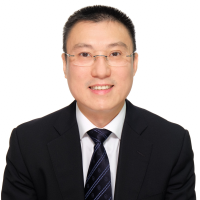
Vincent Law, CFRE PGDip MSoSc MInstF(Dip) | VP, Partnerships & Development
Vincent is an accomplished international fundraising consultant with more than two decades of experience in the non-profit sector and fundraising profession. He is particularly notable for being the first individual in China to receive the Certified Fund Raising Executive (CFRE) designation.
Vincent is a respected leader in the field of fundraising, having founded the Child Psychecology Foundation, a registered charity in Hong Kong. He is also the Master Trainer at the Faculty Training Academy of the Association of Fundraising Professionals (AFP), and previously served as the president of both the AFP Hong Kong chapter and the Lions Club of Hong Kong Millennium.
Vincent's contributions to the fundraising profession extend beyond Hong Kong, as he has served on the international boards of both CFRE and AFP. His educational background includes a BEng degree in Electrical Engineering from Imperial College London, as well as an MSoSc degree in Educational Psychology from City University of Hong Kong, and a PGDip in Lifelong Education from the University of Nottingham, UK.
Advisory Committee
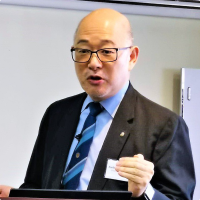
Henry K. H. Wang | Advisor – G20/ B20 International Taskforce & Action Council Member on Energy, Climate & Sustainability
Henry K. H. Wang is an international senior executive, author, advisor & speaker with extensive high level business experience globally.
He is President of Gate International & was a former director of both Shell China and SABIC in Riyadh. He is a Fellow of the Royal Society of Arts FRSA & Fellow of Institute of Chemical Engineering. He is a board member of London University SOAS Advisory Board & University College London China Advisory Board plus China Carbon Forum Advisory Board.
Henry has been invited to join the G20/B20 Global Leaders Taskforces & Action Councils. He has published over 100 papers and speeches plus 6 books globally. His negotiation paper was selected as one of Top Five UK Management Papers of the Year. He has been invited to speak at international conferences plus leading universities and business schools globally. He is also undertaking charity work on leadership, climate and sustainability globally.
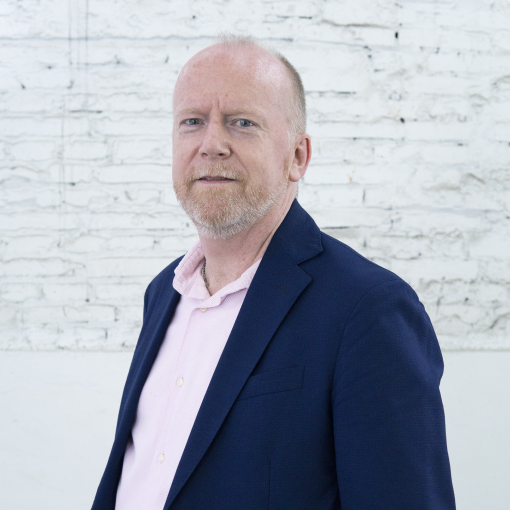
Paul van Brenkelen | Advisor - ESG Practice in Clean Energy Industry
Mr. van Brenkelen is an accomplished sustainability practitioner with over 28 years of professional experience in ATIC (Assurance, Testing, Inspection, and Certification) services industry, and has been deeply involved in sustainable agrifood supply chain solutions since 1994 and renewable energy-related (wind & solar) third-party services since 2010.
Mr. van Brenkelen is currently the ESG Global Director & General Manager China of Clean Energy Associates (CEA) based out of Shanghai. Prior to joining CEA, Mr. van Brenkelen held various senior leadership positions with SGS, Bureau Veritas, TUV NORD, and ESG & sustainability startups across locations in Europe and Asia. His notable experience included managing a competence center for sustainability and emission reduction certification schemes, leading market development of renewal energy-related services in the Far East and building supply chain traceability solutions & ESG portfolio of services for PV-BESS (photovoltaic and battery energy storage system) industry.
Mr. van Brenkelen holds a BASc in Agricultural Science, an MSc in Agronomy, and an MABR in Applied Business Research. He holds IASE International Sustainable Business® Specialist designation. Mr. van Brenkelen is currently completing his Doctoral Degree in Business Management at HKMA/SBS.
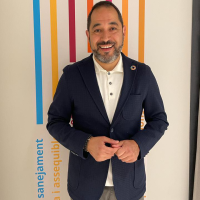
Karim Zouhdi | Former IASE International CEO
Karim is the former Executive Secretary and member of the Executive Committee of IASE International.
Karim is a Certified Financial analyst with more than 16 years of professional experience and an active member of the Spanish Institute of Financial Analysts (IEAF). At an international level, he has held managerial positions such as: Executive Manager of the European Financial Planning Association (EFPA).
Karim has extensive experience as a consultant in the fields of European cross-border regulatory affairs, asset and wealth management, as well as international corporate and institutional relations.
Executive Committee

Mr. Cliff Cheng | Executive Director
Cliff has more than 20 years of working experience in financial services and fintech industry in various capacities as technology & management consultant and corporate executive across China, Hong Kong, and Asia having worked in Accenture, AIA Group and Assicurazioni Generali Group.
Cliff is currently active in venture capital advisory covering startups in fintech, healthtech, and green tech in Asia.
Cliff holds a MSc (Investment Management) degree from HKUST Business School in Hong Kong. He holds IASE International Sustainable Finance® Specialist designation and is a member of Cambridge Institute for Sustainability Leadership network.

Dr Ooi Kim Chai | Director
Dr. Ooi has more than 30 years of working experience in the insurance industry with global multinational companies across Asia. He served in the role of CEO in China, India, Hong Kong, Thailand, and Malaysia for over 25 years in various entities in AIA and Generali.
Dr. Ooi is well connected with key leaders and market players in financial services industry, academicians and regulators in China, India, and South East Asia particularly in the insurance space.
Dr. Ooi holds a doctorate degree in Political Economics from Wuhan University, China. He is also a post doctorate graduate of Chinese Academy of Social Sciences - Institute of Finance and Banking, Applied Economics in China.

Ir Dr Shelley Zhou, PhD, RPE, FHKIE, CAP, BEAM Pro, FSA Credential | Sustainability Lead
Ir Dr Zhou, a dedicated sustainability professional, has over 18 years’ experience in corporate sustainability, environmental and carbon management consultancy, new energy and biotechnology in Hong Kong, China and Singapore. From 2016 to 2019, Ir Dr Zhou was Chief Executive of the University of Edinburgh Hong Kong Centre for Carbon Innovation responsible for driving innovation business development and research projects in Hong Kong. Prior to this, she helped establish the sustainability function of The Hong Kong Jockey Club and has been in charge of delivering the Club’s strategic sustainability performance and reporting for seven years.
Ir Dr Zhou currently leads ESG services in APAC for Capco and she is an expert advisor at a leading ESG and carbon consulting firm in Hong Kong. As an independent consultant, Shelley has led and delivered numerous carbon consultancy project in Hong Kong, Mainland China and Singapore, covering government, banking, financial, real estate and retail sectors.
Ir Dr Zhou actively engages with non-governmental organizations and professional associations. She is currently a Director of the Hong Kong Association of Energy Engineers (HKAEE) and the Chairlady of the Hong Kong Institute of Engineers (HKIE) Environmental Division 2022/23. Previously, Shelley was the President of the Association of Energy Engineers (Hong Kong Chapter), a member of HKSAR Government’s Environmental Campaign Committee Environmental Education and Community Action Projects Vetting Sub-committee (2014-2019), a co-opt member of the Hong Kong Green Building Council Public Education, and a core member of the Hong Kong delegation to COP13 held by the UNFCCC in Bali in 2007.
Shelley holds a PhD in Environmental Engineering from the National University of Singapore and a Master of Philosophy degree in Civil Engineering from the Hong Kong University of Science and Technology (HKUST). Shelley opened a carbon management course in 2010 and currently is the Adjunct Associate Professor at HKUST.

Vincent Law, CFRE PGDip MSoSc MInstF(Dip) | VP, Partnerships & Development
Vincent is an accomplished international fundraising consultant with more than two decades of experience in the non-profit sector and fundraising profession. He is particularly notable for being the first individual in China to receive the Certified Fund Raising Executive (CFRE) designation.
Vincent is a respected leader in the field of fundraising, having founded the Child Psychecology Foundation, a registered charity in Hong Kong. He is also the Master Trainer at the Faculty Training Academy of the Association of Fundraising Professionals (AFP), and previously served as the president of both the AFP Hong Kong chapter and the Lions Club of Hong Kong Millennium.
Vincent's contributions to the fundraising profession extend beyond Hong Kong, as he has served on the international boards of both CFRE and AFP. His educational background includes a BEng degree in Electrical Engineering from Imperial College London, as well as an MSoSc degree in Educational Psychology from City University of Hong Kong, and a PGDip in Lifelong Education from the University of Nottingham, UK.
Advisory Committee

Henry K. H. Wang | Advisor – G20/ B20 International Taskforce & Action Council Member on Energy, Climate & Sustainability
Henry K. H. Wang is an international senior executive, author, advisor & speaker with extensive high level business experience globally.
He is President of Gate International & was a former director of both Shell China and SABIC in Riyadh. He is a Fellow of the Royal Society of Arts FRSA & Fellow of Institute of Chemical Engineering. He is a board member of London University SOAS Advisory Board & University College London China Advisory Board plus China Carbon Forum Advisory Board.
Henry has been invited to join the G20/B20 Global Leaders Taskforces & Action Councils. He has published over 100 papers and speeches plus 6 books globally. His negotiation paper was selected as one of Top Five UK Management Papers of the Year. He has been invited to speak at international conferences plus leading universities and business schools globally. He is also undertaking charity work on leadership, climate and sustainability globally.

Paul van Brenkelen | Advisor - ESG Practice in Clean Energy Industry
Mr. van Brenkelen is an accomplished sustainability practitioner with over 28 years of professional experience in ATIC (Assurance, Testing, Inspection, and Certification) services industry, and has been deeply involved in sustainable agrifood supply chain solutions since 1994 and renewable energy-related (wind & solar) third-party services since 2010.
Mr. van Brenkelen is currently the ESG Global Director & General Manager China of Clean Energy Associates (CEA) based out of Shanghai. Prior to joining CEA, Mr. van Brenkelen held various senior leadership positions with SGS, Bureau Veritas, TUV NORD, and ESG & sustainability startups across locations in Europe and Asia. His notable experience included managing a competence center for sustainability and emission reduction certification schemes, leading market development of renewal energy-related services in the Far East and building supply chain traceability solutions & ESG portfolio of services for PV-BESS (photovoltaic and battery energy storage system) industry.
Mr. van Brenkelen holds a BASc in Agricultural Science, an MSc in Agronomy, and an MABR in Applied Business Research. He holds IASE International Sustainable Business® Specialist designation. Mr. van Brenkelen is currently completing his Doctoral Degree in Business Management at HKMA/SBS.

Karim Zouhdi | Former IASE International CEO
Karim is the former Executive Secretary and member of the Executive Committee of IASE International.
Karim is a Certified Financial analyst with more than 16 years of professional experience and an active member of the Spanish Institute of Financial Analysts (IEAF). At an international level, he has held managerial positions such as: Executive Manager of the European Financial Planning Association (EFPA).
Karim has extensive experience as a consultant in the fields of European cross-border regulatory affairs, asset and wealth management, as well as international corporate and institutional relations.

